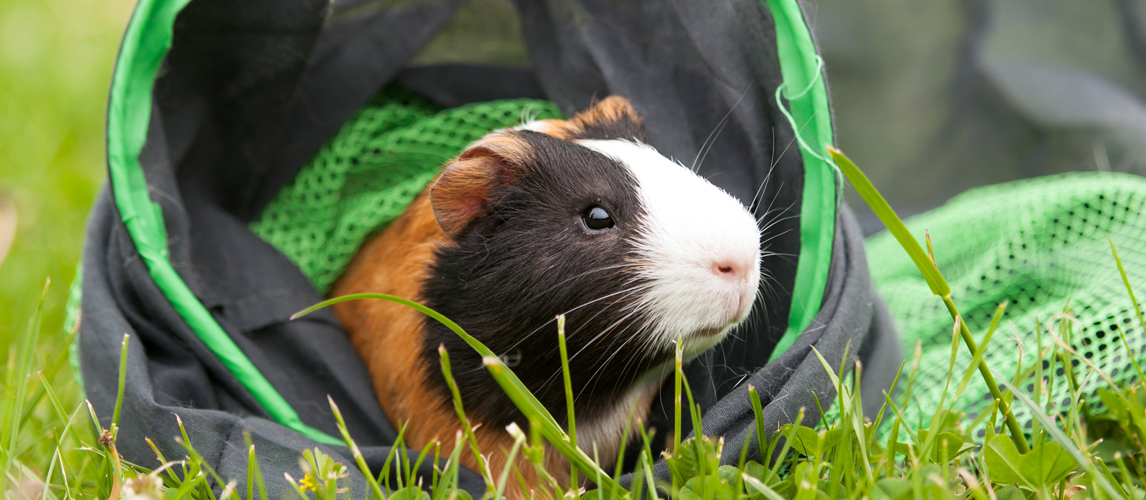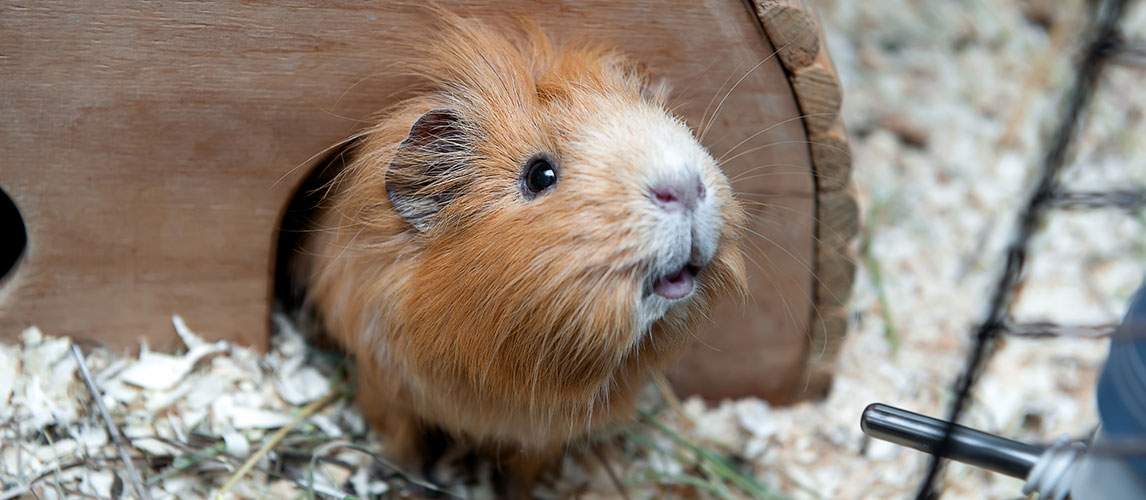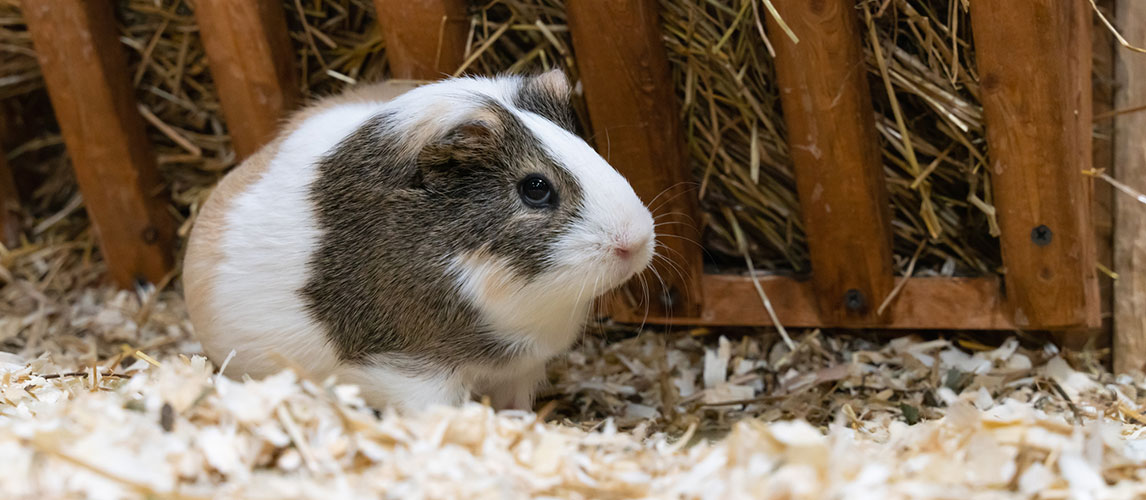Digestive problems can be one of the most uncomfortable problems you may face in your life. Unfortunately, your guinea pig can also suffer from digestive problems, and when they do they will be just as unhappy and uncomfortable as you can be. Constipation is a particular nightmare, but there is a lot that you can do to help them. In our how-to guide here, we’ll look at what causes a guinea pig to be constipated, how you can help them at home, and when to get your veterinarian to intervene.
Guinea Pig Digestion
Guinea pigs have a particular digestive system that can seem a little gross to us humans. They produce two types of fecal matter – hard and soft pellets. You are probably quite familiar with their hard pellets as this is the fecal matter that you must clean up regularly from their cages.
The soft pellets are less often seen. This is because guinea pigs consume this fecal matter – known as cecal pellets – due to its nutritional value. These pellets offer guinea pigs a crucial source of vitamin B. A healthy guinea pig will have both forms of bowel movement.
Unfortunately, there is no normal pattern of pooping across all guinea pigs, so you must look for other symptoms.
Symptoms of Constipation in Guinea Pigs
- Deviation from guinea pig’s normal routine
- Guinea pig not pooping at all
- Straining to pass feces
- Changes in the appearance of the fecal matter
- Bloating
- Lethargy
- Eating less or more food than usual
- Lack or absence of feces in the guinea pig cage
What Causes Difficulty Passing Stool in Guinea Pigs?
Unlike dogs and cats, constipation is not the only reason that your guinea pig might be having a hard time pooping. Other conditions that may make your guinea pig constipated or cause them to stop pooping include:
- Dehydration
- Lack of nutrition
- Dental problems (if they can’t chew, they can’t eat)
- Abscesses in the mouth (see above)
- Incorrect Vitamin C levels (too low or too high)
- Scurvy (Vitamin C deficiency
- Urinary issues (causing pain so the guinea pig stops pooping)
Fecal impaction is also common in male guinea pigs that are between 2 and 3 years old. It’s thought that the increased size of their testicles, combined with the fat deposit in their scrotal sec, prevent feces from coming out of their rectum.
Treating Minor Constipation at Home
If your guinea pig hasn’t pooped for a while but is still eating their guinea pig food and drinking their fresh water like they normally do, try using supplemental food like Oxbow Critical Care alongside water to get your pet’s gut moving. Supplemental fluids work best because they offer more assistance than standard clean water will when you’re trying to get your guinea pig to poop.
Avoid feeding them too much when they haven’t used their bowels in a while. All you’ll be doing is adding to the feces inside them and making the problem worse.
When to Call a Vet
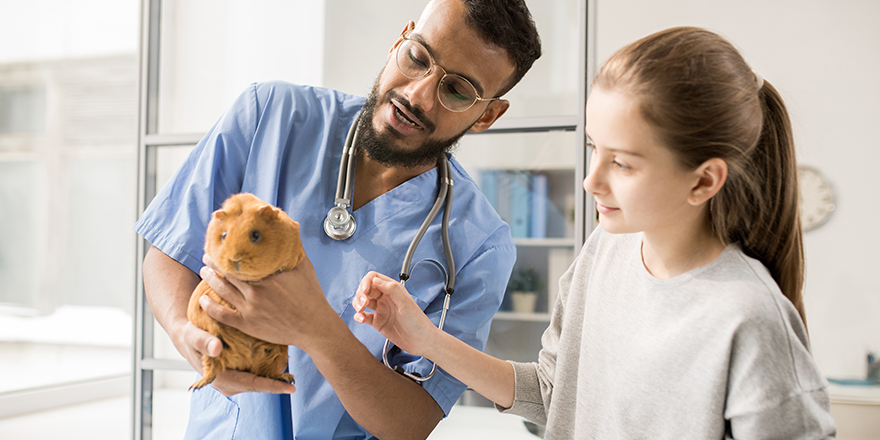
Although it is possible to deal with a constipated guinea pig constipation on your own, you probably won’t know what you need to do unless you are sure of the cause. There may be dietary issues to resolve, and you will need to know if the condition is chronic.
Another reason to visit the vet is to check for secondary concerns related to your guinea pig’s inability to poop. For example, constipation can also be a breeding ground for the eggs of certain species of fly. These eggs become maggots, and the maggots often bore into your guinea pig, killing them. This is, of course, very rare, but it’s still a concern that is worth investigating.
A constipated guinea pig is actually quite rare on the whole, but it is always safest to contact your vet if you notice any symptoms.
You will want to ensure that your vet is experienced with guinea pigs. The best way to do this is to search for one accredited by the Association of Exotic Mammal Veterinarians (AEMV). This will ensure your guinea pig will receive experienced care and attention.
Listen to what they suggest and follow their instructions carefully. It is also a good idea to have a follow-up examination once your guinea pig has recovered. You can confirm the cause, and, if necessary, consult about preventative treatment to discourage future constipation issues.
Why Constipation is Dangerous
When left long enough, constipation can be a life-threatening condition for any animal. Guinea pigs are small, so there isn’t a lot of room in their bowels for excess feces. After 24 hours, the situation becomes very serious for these little animals.
Severe cases can lead to death in guinea pigs, which is why it’s so important to get your veterinarian involved as soon as possible. It may sound strange or even funny, but what essentially happens is over the period of time the guinea pig is constipated, the guinea pig’s digestive tract and organs are being harmed. The term for a blocked gut is called Gastrointestinal stasis.
How Gastrointestinal Stasis Affects Your Guinea Pig’s Body
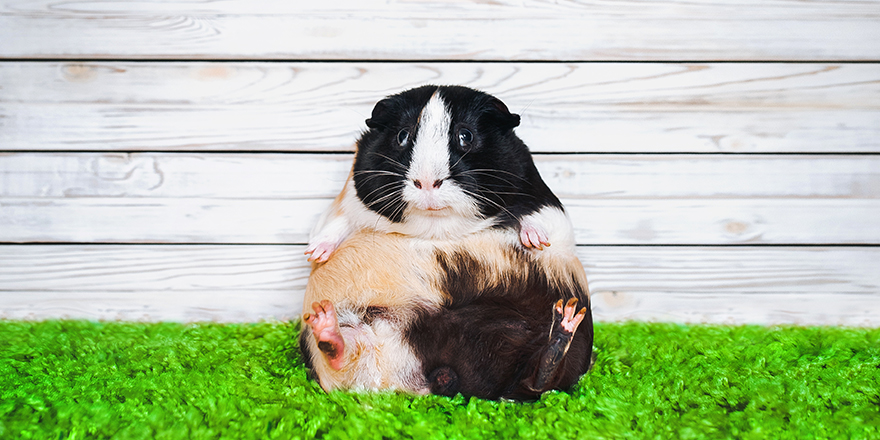
When the gut stops moving, is full of gas, or is blocked by anything, GI Stasis occurs. This serious condition requires attention from a vet immediately because the instructional variant of it can lead to death in 24 to 48 hours.
Symptoms of GI Stasis are almost the exact same as constipation. A minor bout of constipation, however, is much easier to deal with. If your guinea pig is sitting in a hunched position or pressing their stomach against the floor, they are trying to alleviate their pain. A guinea pig’s gut is very sensitive and may be affected by stress, pain, dehydration, lack of exercise, or lack of dietary fiber.
Non-obstructive GI Stasis Symptoms
- Reduction in guinea pig’s fecal size
- Reduction in pooping
- Depression
- Abdominal pain
- Dehydration
- Craving fiber
- Appears over the course of several days
Obstructive GI Stasis Symptoms
- Sudden onset over one to two days
- Guinea pig stops pooping entirely
- Signs of shock
- Depression
- Abdominal pain
- Severe dehydration
- Death in 24 to 48 hours
What to Do if you Suspect GI Stasis
- Get your guinea pig to a veterinarian straight away.
- Allow your vet to stimulate gastric emptying and treat your guinea pig
- Rehydrate your guinea pig
- Follow your veterinarian’s plan to restore their appetite and correct their electrolyte imbalances
- Treat any underlying disorders that may have caused the issue.
Resolving Impaction
There are many potential causes of constipation in guinea pigs. Often it is caused by diet, but elderly, pregnant, and obese guinea pigs can also struggle to reach their anal openings in order to consume their cecal matter. This would then result in a blockage that prevents both hard and soft pellets from leaving their body.
If this is the case, you may need to help your guinea pig manually. This process is called digital evacuation, and is a true testament of your devotion to your pets! It involves you carefully easing out the blockage yourself, and requires a few steps when done properly.
Digital Evacuation for Guinea Pigs
- Wash your hands with antibacterial soap and put on gloves. This is essential for ensuring the process is hygienic as guinea pigs can pass infection on to humans. You will also want to cover your workstation with paper towels.
- Check for the blockage. Impaction is usually quite visible and should be able to be seen when you carefully reveal the anus for inspection. It will appear as a brown mass blocking the exit and may cause the anus to protrude.
- Use lubricant. Petroleum jelly or mineral oil can be used to encourage the fecal matter to exit comfortably. The stool can also be softened using water by submersing your guinea pig’s bottom half.
- Very gently squeeze to encourage the blockage out. Don’t think of your guinea pig as a tube of toothpaste, but instead ease it out using alternating pressure on either side of the anus. Stop if you suspect you may be hurting your pet. Do not use any tools and do not insert anything into the anus.
Depending on the cause of the impaction, you may need to repeat this treatment. If the cause was temporary, you only need to repeat as long as the problem persists, but some chronic conditions may mean you need to create a regular digital evacuation schedule for your guinea pig.
If you are uncomfortable performing digital evacuation, you can bring them to your veterinarian for treatment. They will be more than happy to help you. Although, it is worth noting that if your guinea pig is suffering from a chronic issue, a weekly visit to the vet for treatment may start to add up financially.
How to Prevent Constipation in Guinea Pigs
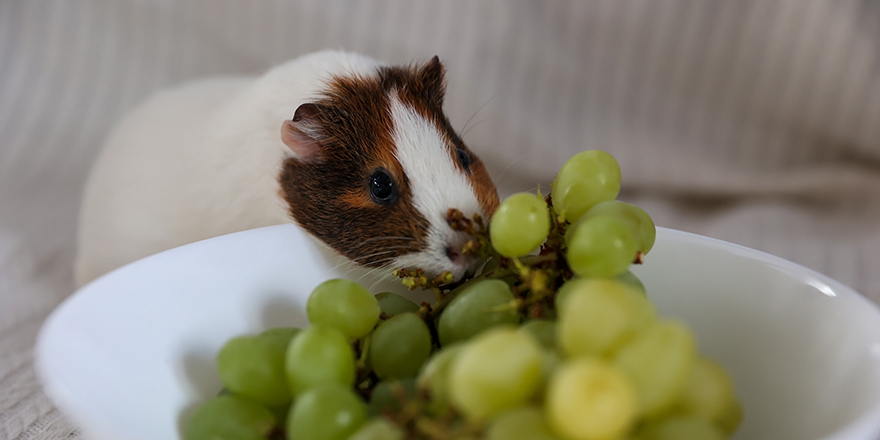
Limit Vitamin C
Vitamins might sound like an excellent addition to include in your guinea pig’s diet. But, when you combine vegetables or vegetable matter with added vitamin C and feed too much of it to your pet, you can cause bowel issues. Be sure to read the analysis of the food you’re feeding your pet to check the levels of Vitamin C.
Guinea pigs only need 10 to 50 mg of Vitamin C each day, depending on the guinea pigs’ age, their condition, and their lifestyle. A guinea pig who is deficient in Vitamin C will need up to 50 mg a day, while other guinea pigs are on the lower end between 10 and 30 mg.
Probiotics
Consider the use of probiotics, which are microorganisms that balance the bacteria in the gut. Ensure you use probiotics designed for guinea pigs, and consult their usage with your vet before you start giving your guinea pig any probiotic supplements.
It will take a week or two for the benefits of the probiotics to show themselves. Don’t be alarmed if your guinea pig has a couple of episodes of diarrhea in the first few days. However, if they seem to be getting dehydrated or lethargic, stop the probiotics and take them to your veterinarian.
Water Bottles
Encourage water consumption using a water bottle, or even a syringe. Water bowls aren’t great for small animals because all kinds of things end up soaking in there, which promotes bacteria. A water bottle doesn’t share this issue.
Make Improvements to Your Guinea Pig’s Diet
Most importantly, it is worth reviewing the diet of your pet no matter what the cause of constipation. An improved diet can both help to cure pooping issues and prevent future ones. Some dietary tips to help a constipated guinea pig include:
- Make sure they’re getting the right amount of hay for guinea pigs
- Do not force them to eat or offer them food from your hand. They will eat when they feel like they need to eat
- Add some soft fruits and fresh vegetables to their diet, which will loosen their bowels. Remember not to add too much fruit as it has such a high sugar content. The best fruits have a low-sugar content.
- Add greens to their diet. Not too much, though, because they can cause diarrhea
- You can add a drop of olive oil to their treats, which should also help bowel movements
Good Fruits and Vegetables for Guinea Pigs
- Apples
- Broccoli
- Carrots
- Cucumber
- Mango
- Strawberries
Fruits and Vegetables to Avoid
- Avocado
- Bananas
- Cabbage
- Cauliflower
- Pears
- Raw beans
You may also like our article on what guinea pigs eat.
Frequently Asked Questions
It can. As a guinea pig gets older, they may find it more difficult to continue eating their favorite foods. Try giving your pet more fiber to help their digestion, and make sure they're eating food appropriate for their age and health.
The inability to poop isn't life-threatening for your piggie at first, but things can go south quickly, so be prepared to take them to the vet if nothing is helping. If your guinea pig is still eating, switch their food to one that is high fiber or add a supplement to help with constipation. You can also get similar supplements to add to their water, instead. If that doesn't help you can try digital evacuation.


